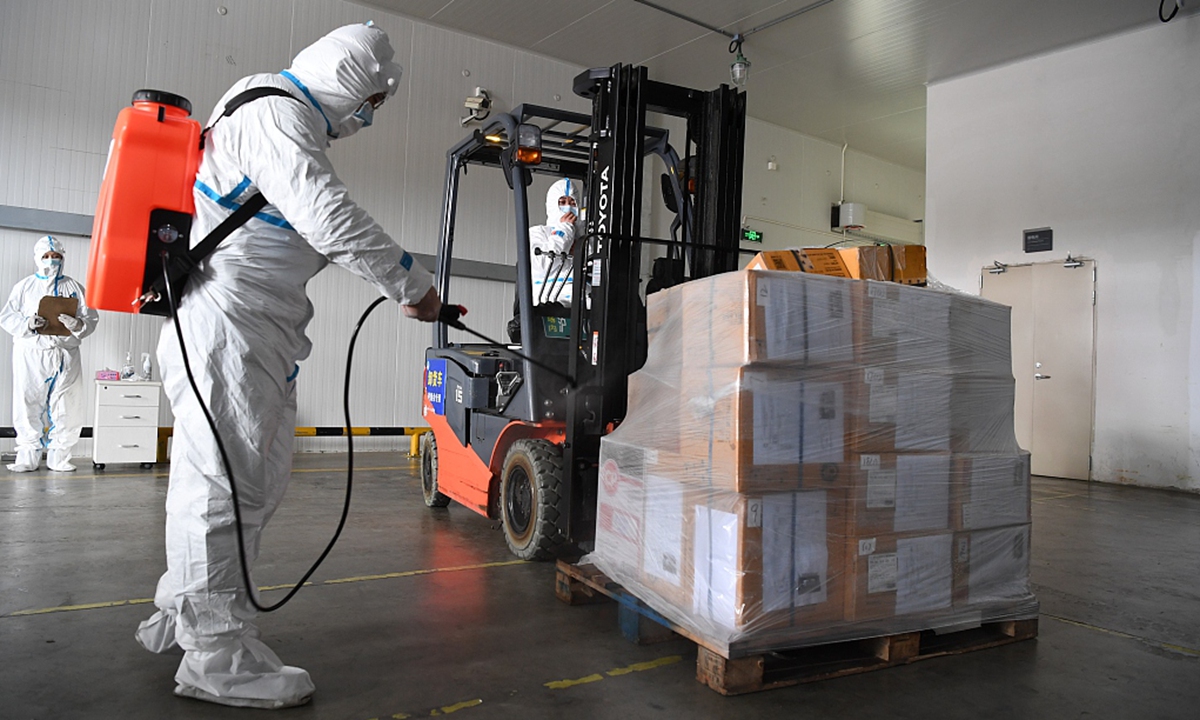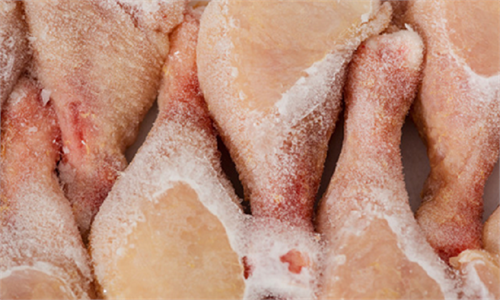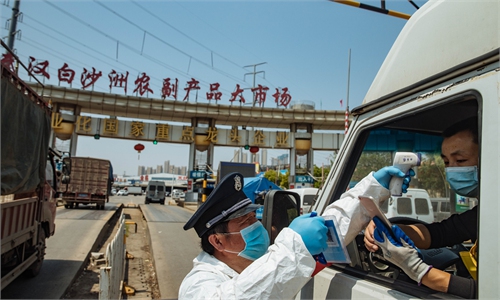
cold chain Photo:VCG
The case is the first report so far of COVID-19 being found on cold chain food products from local sources. Lai'an authority issued a letter asking logistics links outside the province to perform complete investigations.
"The nucleic acid test results on related people and objects in Lai'an county were all negative, and it was not the domestic chicken drumsticks that had a problem," the authority stressed in the announcement.
The county has carried out nucleic acid tests on 423 samples taken from the company where the chicken drums were produced, including raw materials, production lines, cold chain transfer vehicles in the factory, offices and cold storage, all of which have returned negative results, Lai'an's epidemic control team announced on Wednesday.
The drumsticks were from a Lai'an-based subsidiary of US food giant Cargill. The nucleic acid tests performed on all 2,712 staff at the company came back negative.
Cargill chicken drumsticks that tested positive for COVID-19 in Anhui Province were transported, stocked and sent for inspection by the distributors, Cargill told Global Times on Thursday.
Cargill is joining the local authorities in investigating the case, Miao Jie, a communications employee at Cargill, told the Global Times on Thursday.
The case was found in Wuxi of East China's Jiangsu Province. A supermarket logistics center in Liangxi district of Wuxi bought the products from the Cargill subsidiary, and a test sample returned positive traces of the coronavirus.
Wuxi's authority then asked Lai'an to help investigate the matter, Lai'an authority said.
The case has triggered speculations about the true source of the contamination. An immunology expert, who asked not to be named, told the Global Times on Wednesday that it is likely to have been contaminated by imported food products carrying the coronavirus during cold chain transportation.
Concerns over coronavirus infection from cold chain products and a virus resurgence have been raised after traces of coronavirus on packaging of cold-chain products like frozen pigs' ears from the US and Brazilian beef were reported in multiple Chinese cities.
People have different views about the risk of infection from touching such packaging.
Emanuel Goldman, a microbiologist at Rutgers University's New Jersey Medical School of the US said that it is "not impossible" but "unlikely," although "there is a theoretical possibility of catching the virus that way," according to a report by US media outlet NPR on Wednesday.
He added that people have to "touch a freshly contaminated surface, like a doorknob or food packaging, and then touch the face, or entry points for the virus like the mouth, nostrils or eyes, without having washed their hands."
However, Wang Guangfa, a respiratory expert at Peking University First Hospital told the Global Times that the possibility of infection after exposure to the packaging still exists based on the recent COVID-19 resurgence in some Chinese cities.
He added that whether the virus is dead or alive as well as the viral load on the object are two key factors for infection.
"But the risk is much lower than from person-to-person transmission," he noted.
A positive nucleic acid test result on the packaging does not necessarily mean the packaging carries the live virus; it may also be dead virus, or remnants that are not infectious, Yang Zhanqiu, deputy director of the pathogen biology department at Wuhan University noted.
But he said that in a cold-chain environment, there is a high possibility that the virus will be alive, which brings a risk of infection.
Notably, Wu Zunyou, chief epidemiologist at the China Centers for Disease Control and Prevention, told the media recently that in sub-zero temperatures, from -1 C to -10 C for instance, the coronavirus can live for several weeks to months.
Both Wang and Yang noted that strengthening inspection of cold chain products, ensuring protective measures for people handling cold-chain products, and encouraging hygienic habits are necessary to prevent infection.


